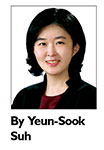 One of the issues created by the Internet concerns the right to delete what one has posted on the web.The Korea Communications Commission has recognised that while there are actions and remedies that can be taken concerning posts by a third party (such as injunctions), regulatory blind spots exist when it comes to an individuals’ own posts. For example, problems can occur when people cancel their accounts on a website and lose the access rights to administer their posts. To address these problems and protect the rights of individuals over their own words, while at the same time minimising the negative impact that could limit freedom of expression, the Korea Communications Commission has established a draft proposal for ‘Guidelines on Access Restrictions by Authors to Their Own Self Censorship’. The draft guidelines acknowledge that users of websites have a privacy right to restrict access by others to content the users have the privacy right of authors to censor their own content. Such rights apply to one’s own posts (including writings, pictures and uploaded videos) and also to the posts of someone who is deceased. (Such privacy rights could be exercised by surviving relatives and trustees). Administrators and providers can reject such requests if such restrictions would violate other laws or if there is a strong public interest in providing access to the post that outweighs the privacy right. Examples would be a statement by a public official about public policy, or a news article published by the press. The guidelines also provide procedures for a party to demonstrate that he/she is the true author of a post and to request re-publishing of a deleted post that has been improperly deleted. The guidelines will begin to be applied in mid-June of 2016. They will begin as voluntary guidelines for service providers. Although they will not be legally binding, it will be a meaningful first step in the quest to protect an individual’s privacy right to be forgotten. ––––––––– |
The right to be forgotten
65
previous post

